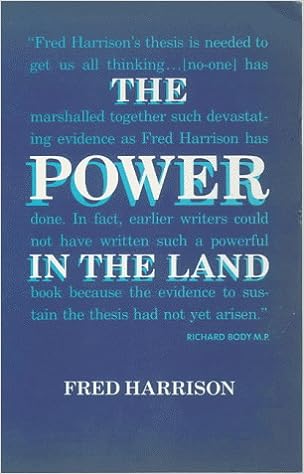
The Power in the Land
Cover may differ.
This book is as relevant today as it was when it was published in 1983: we are faced with another global depression, which as it deepens, intensifies the pressure on governments and puts policy-makers in a dilemma. Every prescription has its negative: monetarism - unemployment; Keynesianism - inflation; and the planned economy - authoritarianism. This dilemma, the author argues, stems from a distortion in our understanding of how the industrial economy works, a distortion he traces back to Adam Smith. Adam Smith provided the captains of industry with a theoretical framework and moral justification for the new mode of production which sprang from the Industrial Revolution. He believed he was setting out the rules for a free market system but, inconsistently, he granted landowners an exemption enabling them to exert a monopoly influence on the market which remains to this day. The Marxist critique blames the capitalist for the ills of the system, yet Marx himself acknowledged that the power of the owners of capital rested on the power inherent in land.
